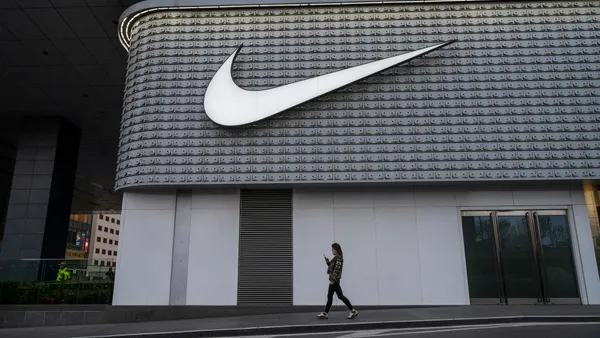Dive Brief:
- Ascena Retail Group — which operates Ann Taylor, LOFT, Dress Barn and other store brands — has laid off around 200 employees as part of a new move in an ongoing restructuring effort, according to a release emailed to Retail Dive.
- In the release, the retailer said restructuring includes consolidation in its Plus Fashion and global sourcing segments.
- Ascena CEO David Jaffe said in a statement: “We cannot operate today the way we did yesterday. It’s never easy to reduce our workforce; that’s always the toughest part and we are very appreciative of our associates who have been part of Ascena and dedicated their talents.”
Dive Insight:
Amid challenges on several fronts, Ascena is trying to become leaner and more focused. The restructuring initiative it launched last year, dubbed “Change for Growth,” looks to focus company resources on key customer segments, improve its time to market, reduce working capital and boost the company’s omnichannel capabilities. The efforts come on top of sales declines across many of its brands and warnings that traffic at its stores could continue to slow.
The company has faced several quarters of losses and sales declines, with the company reporting in March a $100 million sales drop and a $35.2 million net loss for the second quarter. Still, the company edged past Wall Street expectations slightly on those results. Jaffe said at the time, “While we remain generally pleased with selling performance during peaks, our base business remained soft due to ongoing store traffic headwinds and overall customer price sensitivity, which have become persistent issues impacting our larger sector.”
To try to boost growth, Ascena has stepped up its efforts online and in omnichannel — a particular challenge for apparel retailers, which are more dependent on the “touch and feel” experience for shoppers, but an effort that Jaffe says is necessary considering the obvious influence of e-commerce.
Amid weak sales, the company is also tackling its bottom line through the restructuring effort. That includes a 25% reduction in its store footprint that Ascena announced in January, as well as reductions in merchandising procurement spending and attempts to fix front and backlog dysfunctions.
On a conference call with analysts in May, Ascena executives painted a picture of a company taking stock of the new retail environment, which includes a major shift to e-commerce and changing consumer priorities, often away from purchasing apparel in favor of paying for experiences and smartphones.















